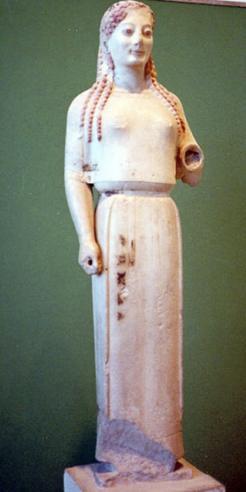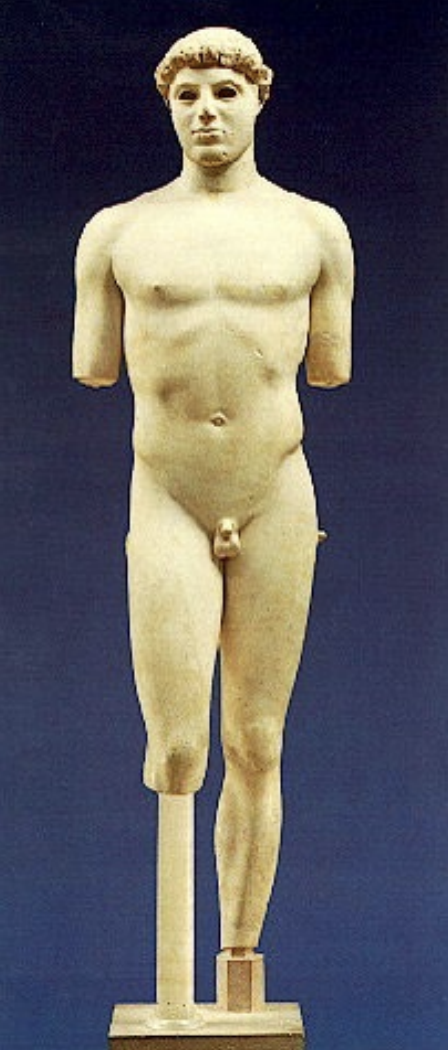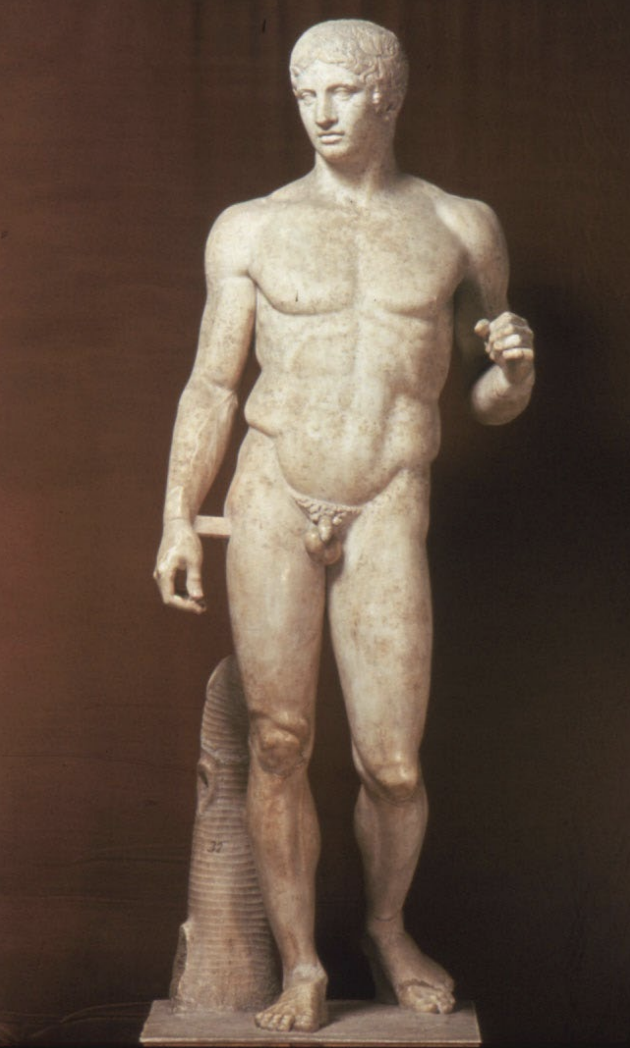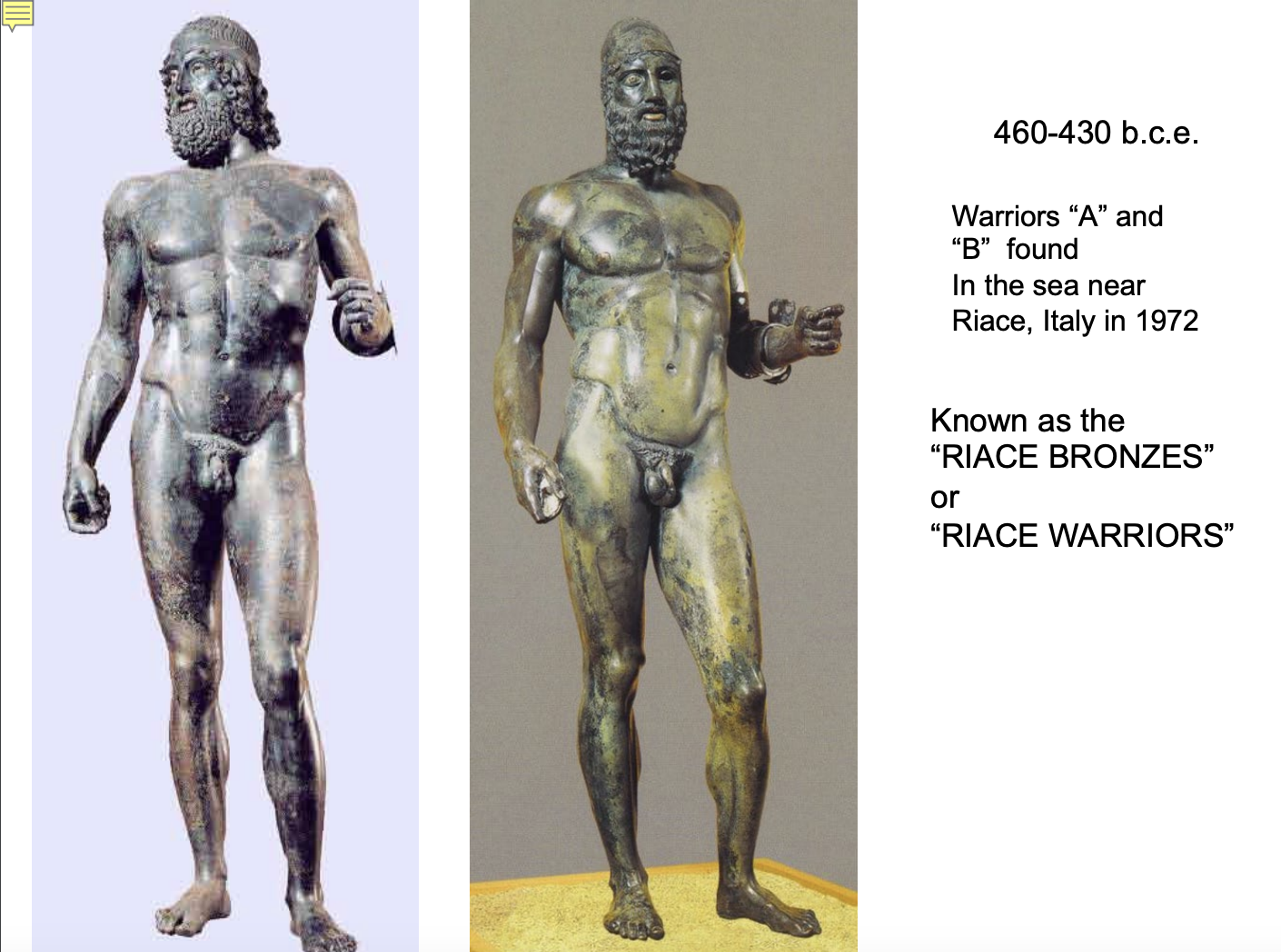Archaic Period, cont. + Classical Period
The Kouros’ companion: Kore ~530 BCE

fancy hair
painted
wearing a tube dress called a "peplos”
530 BCE
(ideal woman while kouros was the ideal man)
she was very tubular/cylindrical
Within 100 years, Kouros figures began to change radically…
In 530 BCE as seen with Kore, they are less angular and the face/head is more proportionate to the body
As stated earlier, they were using Egyptian “in relief” sculptures as references but now they’re using actual humans
These radical changes exacerbated by 480 BCE Battle of Salamis - Persian invasion (greeks convinced persia to go in narrow thing, athens escapes to water, persia eventually gets to atens and burns it to the ground but atens ppl have escaped to water at this point already). This burning and changes brought about a NEW PERIOD…
The Classical Period
Kritios Boy 480 BCE — the first of a new period! (ppl built over the ruins!)

Achieved contrapposto—standing with a weight shift (opposed to Egyptian power stance)
Differs from Archaic smile—neutral, or maybe even angry depending on lighting—facial expression
*glass—realistic eyes, differs from archaic period where eg kouros figure didn’t have glass/realllllistic eyes
shorter hair with no braids; curly—differs from braided archaic hairstyle
→ THIS WAS THE PERFECT!!! BODY!!! (THE SPEAR CARRIER etc!)
“The Spear Carrier” 450 BCE
 Artist—Polykleitos
Artist—Polykleitos
Polykleios (artist) wrote a book called a cannon/canon→all about ideal proportions
as such, “the spear carrier” featured fuller muscles, more detailed bones and tendons
*the original was made of bronze = COPPER AND TIN and holding a spear; we only have copies
Riace Bronzes 460-430 BCE

Two bronze sculptures actually intact and here today! Why is this so surprising? Bc they were melted and used for weapons! Especially in the Middle Ages when they didn’t love frontal nudity !
An Italian chemist was on vacay, went scuba diving, and saw a hand — eventually found it with help/strategy in Riace, Italy in 1972
HOW to make something of bronze???
The Lost Wax Process
also known as bronze casting
Essentially:
1) Clay base
2) Wax with tubes
3) Bronze poured in, wax melted—thin bronze layer